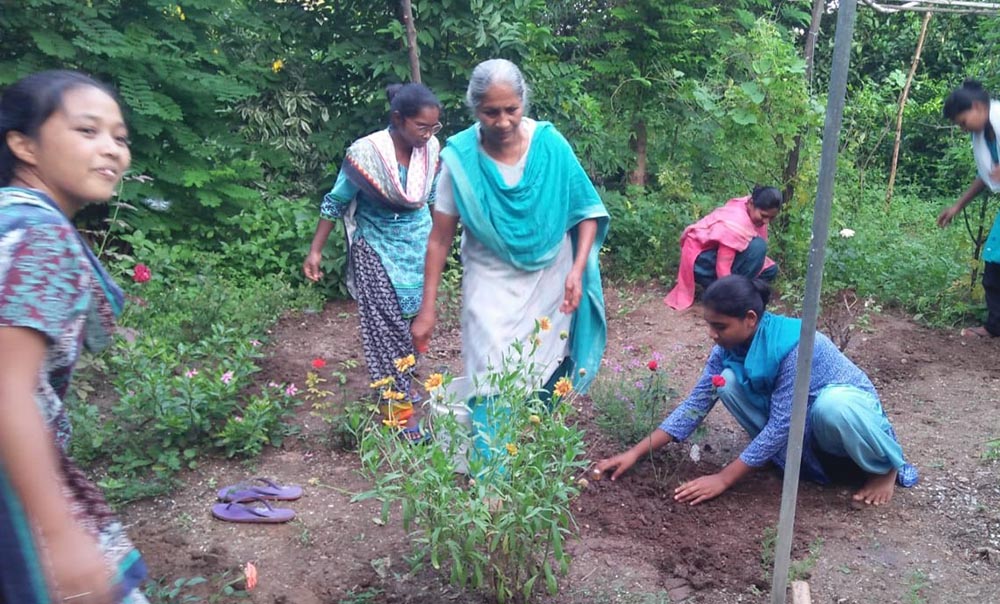
Sister Molly, manager of the farm at Deepalaya, run by the Medical Mission Sisters in Khandwa, Madhya Pradesh, India, leads novices in planting. (Courtesy of Celine Paramundayil)
"You may find snakes in the garden but please don't kill them. They have a right to live in this property like us. They will not hurt you unless you hurt them." This was the instruction Sr. Molly Vadaken, the community coordinator, gave to the new novices as part of their orientation to the house and property.
It reminded me of the great words of Sir David Attenborough: "I think sometimes we need to take a step back and just remember we have no greater right to be here than any other animal."
The Medical Mission Sisters started the community Deepalaya ("house of light") in 2006 in Khandwa, Madhya Pradesh, India. They built a boundary wall and a house within the three-acre farmland, and it has been well-used ever since.
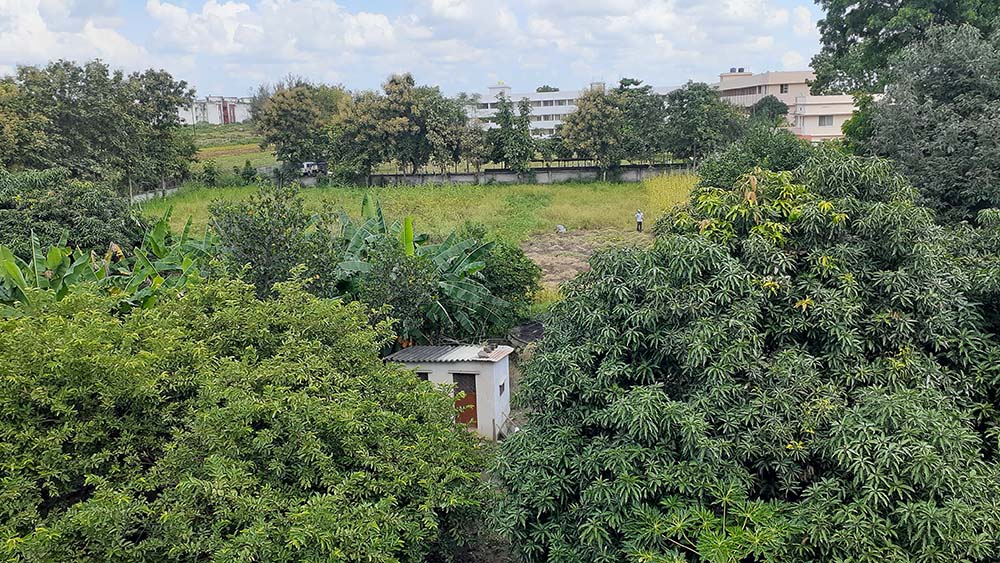
The farm at Deepalaya in Khandwa, Madhya Pradesh, India (Courtesy of Celine Paramundayil)
In keeping with the vision of our founder, after Vatican II our General Chapter decided to integrate psycho-spiritual, socioeconomic, structural justice and ecological dimensions into our healing charism.
We watched as health care became more of a profit-driven business, and wanted to promote holistic health — body, mind and spiritual integration — into our ministries, and an ecological awareness that food is medicine. Mother Earth provides every nutrient to keep us healthy. The importance of organic food is stressed by many other groups and by Ayurveda, the traditional health system of India.
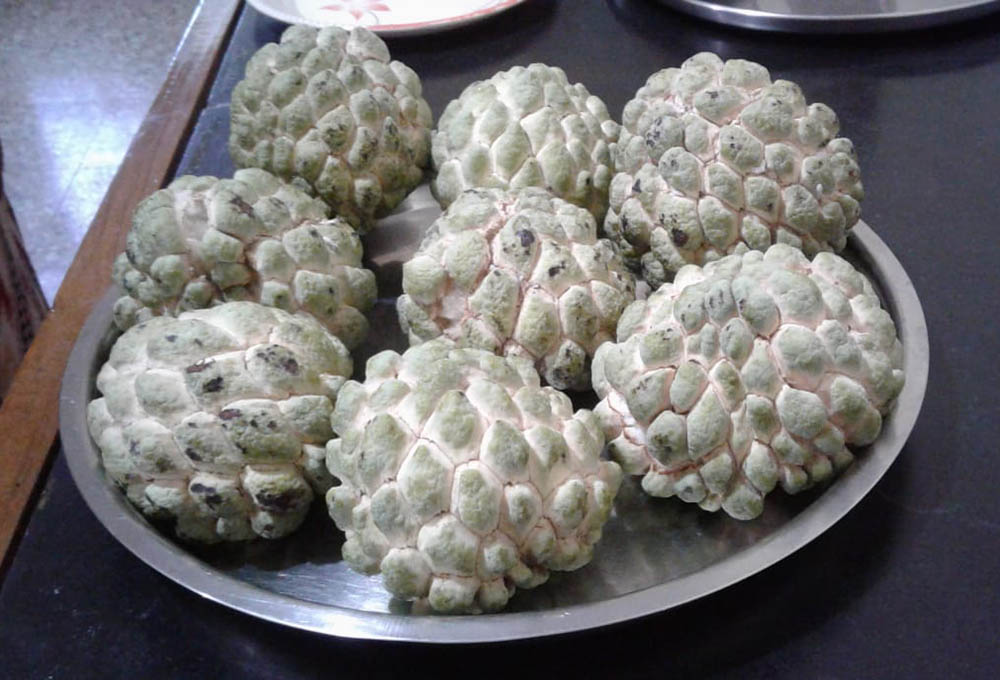
Custard apples from the orchard at Deepalaya in Khandwa, Madhya Pradesh, India (Courtesy of Celine Paramundayil)
In Deepalaya, the pioneer sisters planted an acre of land with seasonal tropical fruit trees like mangoes, papaya, banana, chikku, gooseberry, custard apple, and varieties of lemon. We latecomers were blessed to enjoy the fruits of their labor, while we too continue to care for Mother Earth.
Another acre of land is for cultivating food grains — wheat, corn, millet varieties, and various kinds of pulses. Another area is full of seasonal vegetables like carrots, cauliflower, a variety of beans, and eggplant.
Close to the house is the flower garden, with flowers of many colors — including a butterfly plant where multicolored butterflies gather around to flutter their wings and make a feast for the eyes.
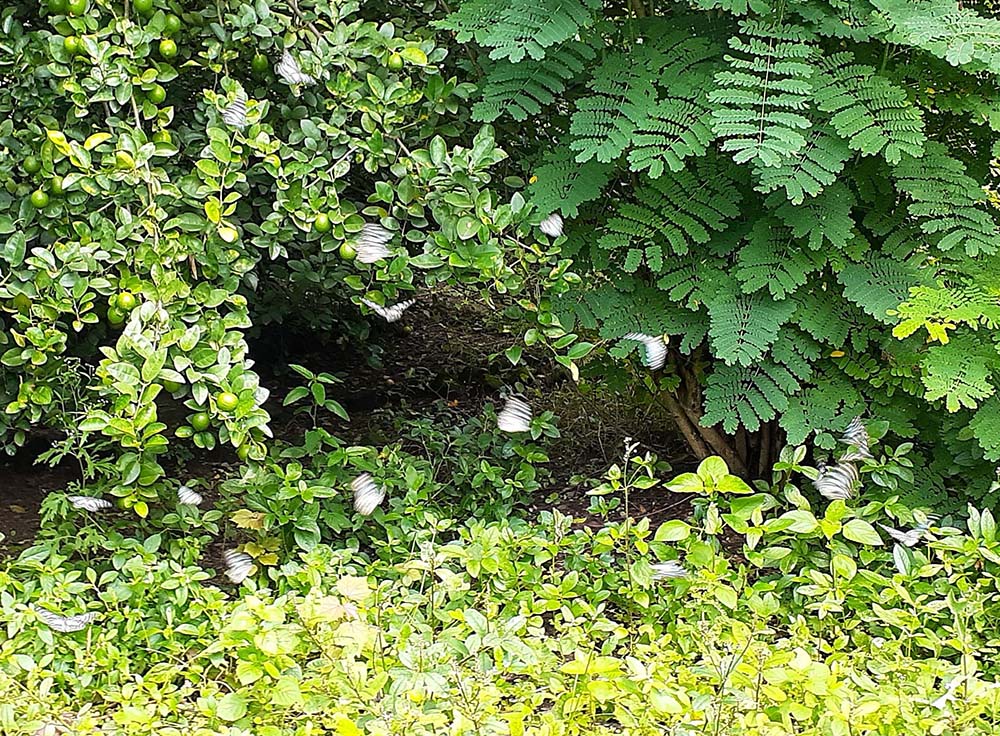
Butterflies cluster around the butterfly bush at Deepalaya in Khandwa, Madhya Pradesh, India. (Courtesy of Celine Paramundayil)
All kind of birds enjoy the land and sing in the mornings and all through the day. Squirrels have full access to the produce of the farm and the fruit trees, and rats take their share of grains as well. Snakes — both the harmless and poisonous — enjoy the land, but no one has been hurt so far.
Mosquitos are the only unwelcome guests, and they do dare to enter even the privacy of the novitiate house despite the mosquito mesh everywhere! "Smoke aarthi" with neem leaves are a usual ritual in the house to chase mosquitoes. Bitter juice from chirata leaves (herbal medicine to purify blood) are provided weekly to protect us from malaria and other illnesses.
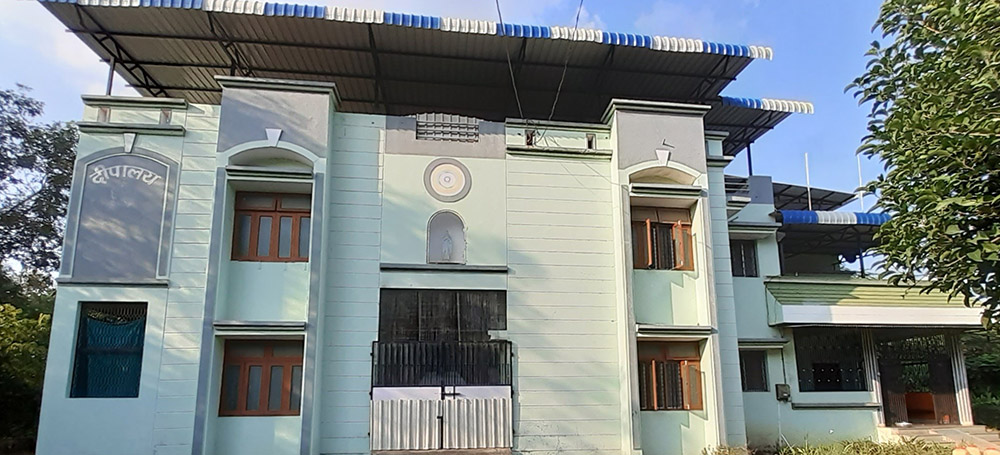
The house at Deepalaya, built by the Medical Mission Sisters in 2006 in Khandwa, Madhya Pradesh, India (Courtesy of Celine Paramundayil)
In between are the shade trees, whose roots help to retain water in the land, and help maintain the water level in the well even in summer. Bamboos and teak woods give a majestic look all around the boundary. Sister Molly is a trained environmentalist who manages the farm, since Sister Josephine succumbed to COVID-19 after many years of dedicated work managing the farm and making herbal preparations.
All the seasonal fruits are in demand since they are produced organically. People who taste the fruits here do not like to go back to the market, as they know the difference in taste. After our domestic use, all the excess fruits and vegetables are shared or sold every year to people who come here to buy.
There is an herbal garden with many medicinal plants used to prepare oils and tablets for all aches and pains as well as minor injuries and diseases. Hair oil is prepared according to order from outsiders. Many herbs and green leaves are used for consumption as well.
Advertisement
There are four manure pits in the property where the vermicompost (with earthworms) is prepared for the year. All waste waters from the house, as well as rainwater, is directed to the pits and the area around the tube well for water conservation.
To keep insects away, natural pesticide is prepared from neem leaves and cow urine. Neem trees are air purifiers, too, and keep the atmosphere pollution-free. Drumstick (moringa) flowers and leaves are used for cooking, and the trees produce fruits and leaves all year.
When the world is facing honeybee extinction in many places, you find honeybee hives here in the trees as well as in the corner of the building. Just like the snakes, they are harmless as they freely fly around the plants and flowers, doing their business. With the help of beekeepers, honey harvesting is done without hurting the bees or the hives.
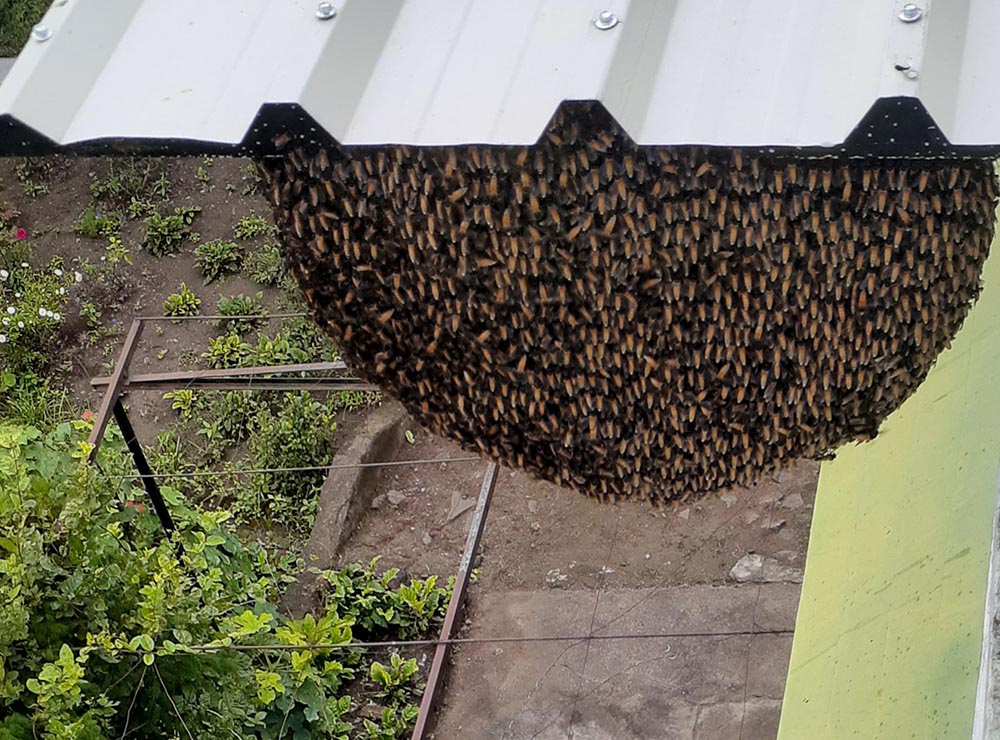
Honeybees gather at Deepalaya in Khandwa, Madhya Pradesh, India. (Courtesy of Celine Paramundayil)
Subhan Bai and Rama Devi (names changed for privacy) are hired from the leprosy colony, where people are still hesitant to interact with them though they are free of the disease. They have been working on the farm since its beginning and know every corner of the land and what needs to be done and when.
Lucky and Jacky are two watch dogs who keep us safe at night, alerting us to the presence of snakes or any intruders to the property, while they freely rest during the day.
Madhya Pradesh, in central India, unfortunately has extreme weather conditions: Summers are very hot, with water scarcity, and winters are icy cold. Sisters enjoy the fresh water from the well, and every summer share water with more than a hundred families around the village who cannot afford to buy water. Hence Deepalaya farm became a real oasis for the sisters and those around us.
The novices in training to be Medical Mission Sisters not only get the classes but also hands-on experience in planting, weeding, gardening and harvesting the fruits. This inculcates the value of caring for Mother Earth, and the awareness that we are not separate entities but one and the same. This is a refreshing experience amid their classes and other training.
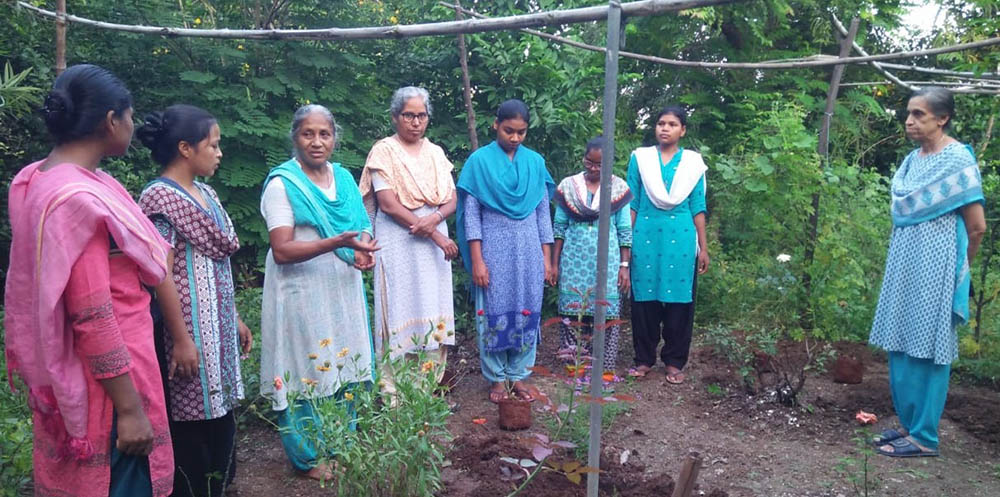
Sister Molly explains ecological principles at Deepalaya, run by the Medical Mission Sisters in Khandwa, Madhya Pradesh, India. (Courtesy of Celine Paramundayil)
And we are promoting the UN's Sustainable Development Goals, especially 1 and 2 (nutritious food), 3 (good health and well-being), 5 (empowerment of girls and women), and 6 (safe drinking water and sanitation) — to name just a few.
We concluded the Season of Creation with the novices planting their rose plants (which they received as a gift at the time of their official entrance into the novitiate) as a sign of new life. Earth Day and other environment days are celebrated annually with the novices.
With the psalmist, we sing praise to God that in your house "even the sparrow finds a home, and the swallow a nest for herself, where she may lay her young" (Psalm 84:4).





